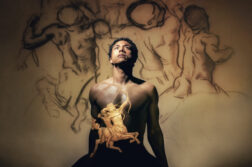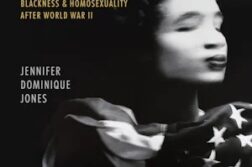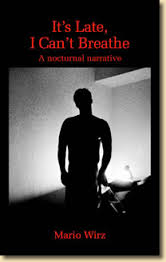 It’s Late, I Can’t Breathe: A Nocturnal Narrative
It’s Late, I Can’t Breathe: A Nocturnal Narrative
by Mario Wirz
Meyer Books. 131 pages, $12.95 (paper)
Anglophone readers have a wide spectrum of AIDS memoirs available to them, including such acclaimed titles as Mark Doty’s Heaven’s Coast, Paul Monette’s Borrowed Time, and Harold Brodkey’s This Wild Darkness. All of French author Hervé Guibert’s AIDS works—fictional and autobiographical—have been translated into English. Still, few other European books on the topic have been translated—perhaps inevitably, given the cost of commissioning such works and their limited commercial appeal. Now, after sixteen years, and fortuitously if somewhat inexplicably, German author Mario Wirz’s account of his sharp decline in health, Es ist spaet, ich kann nicht atmen, is available in an impressively lively English version. Alfred Meyer’s translation captures the suitably breathless quality of the original, which comes across as akin to the more familiar writings of New Yorker David Wojnarowicz (Close to the Knives, 1992). There’s a thematic parallel, too, in that both authors write up their illnesses as the Gulf War rages on television. AZT is proffered as the only available palliative to the self-consciously jaundiced, marginal, and laconic Wirz, who—rather like Guibert—recounts bed-bound obsessions with a cast of characters. There’s careerist nurse’s aide Juergen, a doctor mouthing easy pieties, and the shallow affability of nurse Sven, on whose uplifting platitudes Wirz notes: “Nobody will miss you and your cemetery of psycho-babble.” Movingly, the memoir recounts the collapse of Wirz’s long-term relationship with Jan. Deftly and arrestingly the author universalizes from every particularity of his experience, summing things up: “Every love story is also the history of an illness. The same symptoms time and again.” The energetic to-and-fro of Wirz’s attentions reflects the desperate distractions of a mind in hospital. It also allows Wirz to recapitulate an emblematic gay man’s life before and during the epidemic. Thus, the wait for the confirmation of Wirz’s HIV-positivity—narrated over the last page—is both the end and the beginning of this pithy, often remarkable little book.
Richard Canning
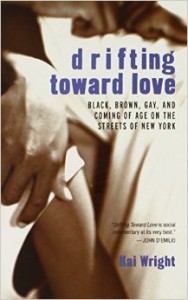 Drifting Toward Love: Black, Brown, Gay, and
Drifting Toward Love: Black, Brown, Gay, and
Coming of Age on the Streets of New York
by Kai Wright
Beacon Press. 240 pages, $24.95
Journalist-editor kai Wright sets for himself an ambitious project in this new book of nonfiction. Wright records the stories of Manny, Julius, carlos, and their friends, gay male teenagers of color who are desperately seeking the basics of life—a home that’s more than just shelter and security from so many things other than disease and violence. These young men have few resources and lead sometimes tragic lives, though there are the moments of heroic achievement. Manny is a working-class city kid with typical teenage struggles. he and his best friend Jason have a casual love relationship, held together in part by drugs and sex for money. Manny comes to realize that Jason has many demons to deal with; he decides to become an activist. Julius has left his rural home and come to the big city, but he lacks the navigation skills needed to survive in New York and winds up homeless, hustling, and addicted to drugs. Wright explores these difficult and troubling stories with intelligence and compassion, offering poignant insight into an often overlooked population.
John MitZel
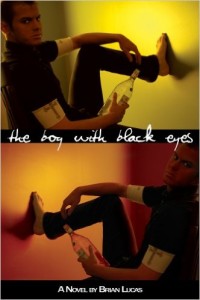 The Boy with Black Eyes
The Boy with Black Eyes
by Brian Lucas
Panic Press. 120 pages, $9.95 (paper)
Brian Lucas’ new novella deserves to be read in one sitting for maximum impact. The story chronicles a teenager named Brian through his first relationship and all that loss of innocence. It’s a tried and true—perhaps even tired and true—subject, but Lucas’ confessional approach is endearing as well as earnest. Brian is an art student, and he writes early on about a teacher who informs him that the color black is a “dangerous instrument.” This is, in fact, one of many warnings the young lover fails to heed. The others, of course, all pertain to the title character, a “mystery man” named Nathaniel with whom Brian becomes infatuated and obsessed. The two young men meet at the mall, where Nathaniel works in a scent shop, and their cute but witty meeting holds all the promise of a romantic comedy flick. But Nathaniel quickly proves to be a mercurial character, charming when arranging their first date but slightly unglued once it transpires. In Brian’s mind the relationship is all consuming, but The Boy with Black Eyes is too thinly plotted to get this across convincingly. The image of predator and prey is repeated throughout the book—a bit clumsily when the reference is to Pavlov’s Dogs. While Lucas may be unafraid to lay bare the eroticism of the affair—there’s an especially sexy chapter followed later by a much less sexy one—but the purple prose is a bit much at times. Lucas’ persistent use of alliteration is distracting, especially when the author proves himself capable of some terrifically poetic turns of phrase. Lucas shows promise as a writer with this novel. Perhaps with this first effort the author has gotten his coming-of-age book out of his system and can move on to other things.
Gary M. Kramer




